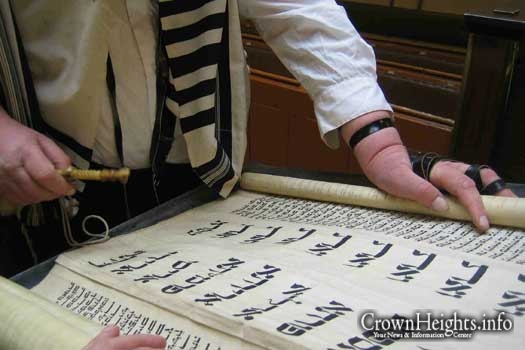
The Deeper Meaning Of Purim
Back in the mid -1970’s, Chairman Leonoid Brezhnev addressed a large audience of Communist Party faithful gathered at the great stadium in Moscow.
“By the year 2000,” he declared, “every family in the Soviet Union will have its own airplane!” The crowd roared in sheer exhilaration.
Suddenly a small voice emerged from the great throng, “Mr. Premier! Mr. Premier! Why would a family in Moscow need an airplane?”
A great hush overtook the crowd. Then from nowhere a voice boomed: “Of course we shall need an airplane! How else will we get to Kiev when there are potatoes for sale?”
The Purim story had a picture perfect ending. The evil plot designed to decimate the Jewish nation was foiled and their lives spared. Jewish leaders found themselves exalted, even as the villains hung on the very gallows meant for their Jewish targets.
If that is not enough, the Megillah continues to relate: “As for the Jews, there was light, joy, happiness and splendor.” There had been a complete reversal – a one eighty – from the depth of despair the Jewish people rose to the height of liberation and glory. Can you really ask for more? Well, apparently you can.
The Talmud is not satisfied with the simple definition of “light, joy, happiness and splendor.” The sages insist that light refers to Torah,joy refers to circumcision, happiness refers to Yom Tov, and splendorto Tefillin. But why could they not leave good enough alone? What’s wrong with simple joy and splendor?
Evidently, the Talmudic masters were not impressed with happiness that lacked Divine influence and purpose; miraculous as it was. Fleeting and monetary joy that quickly lapses into tomorrow’s sorrow and disappointment – as is so often the case in the secular domain – could not be the type of joy over which the Megillah is making such a Tzimes.
Our Sages did not doubt for a minute that when the Torah speaks of light, joy, happiness . . . it’s referring to the real deal – wholesome and enduring joy and nachas that nourish both body and soul. Joy and splendor offer little allure when they are not permeated with eternal meaning and value.
The latter may help explain a rather peculiar statement attributed to the saintly Ariz”al: “It’s no coincidence that the holy day of Yom Kippur is referred to in the Torah as “Yom Kipurim,” which means a day like Purim. For Yom Kippur is only somewhat like Purim, but not quite the same.”
How can this be, the two days are not even remotely similar, they are in some ways even opposites?
Of the two, it is quite obvious that Yom Kippur is far more meaningful and holy. Yom Kippur is, in fact, the holiest day in the Jewish calendar – dedicated to praying and fasting – while Purim is devoted to jesting and feasting. Hence, what sense does it make to say that Yom Kippur is almost like Purim? This seems entirely counterintuitive – like some kind of Purim jest. Yet it’s not.
According to the Ariz”al Purim actually contains some aspects that are loftier than Yom Kippur. How so?
There’s a story of a great Rabbi whose attention was called to a very pious person. The individual was said to be so holy that he often refrained from eating for entire days. Upon hearing this, the Rabbi remarked: “while fasting may be a sign of greatness, in truth anyone could actually fast. However, the one who eats with pure intent – for the sake of fulfilling G-d’s dictates – he is more praiseworthy.” The latter may well explain the lofty nature of Purim.
On Purim we have the obligation to eat, drink and be merry. This merriment however, is not for the purpose of whetting our palate or satisfying our cravings. We do not celebrate this day with frivolous joy and pleasure alone – “potatoes in Kiev” – much as the original Purim was not limited to a monetary victory and celebration, as stated above.
Because the elevation and transformation of the physical can be far more lofty an accomplishment than mere self-restraint and asceticism, Purim actually contains an element that is more profound than even Yom Kippur.
We eat and drink on this day out of a sense of gratitude for the G-d given ability to realize and incorporate higher purpose in mundane life. We celebrate our good portion, pleasant lot and beautiful heritage – the gift of true “light, joy, happiness and splendor.”
Wishing you a happy Purim and abundance of light, joy, happiness and splendor.















TRULY ADMIRABLE!!!smk
BEAUTIFUL!! MAY WE GO FROM “GEULAH TO GEULAH:”